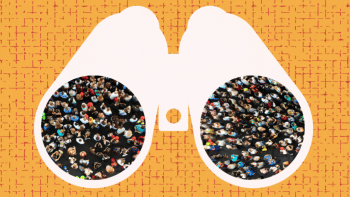Spyware over scholarship: How Bangladesh's priorities shifted under Sheikh Hasina

In an era where Bangladesh desperately needs to foster critical thinking and innovation, a look at the spending priorities of the ousted Awami League government during its 15 years of rule paints a troubling picture. This analysis exposes the stark contrast between the government's lavish expenditure on spyware versus its paltry investment in academic research between 2009 and 2024. While national security is undoubtedly important, one must question whether the scales have tipped dangerously in favor of watching minds at the expense of nurturing them.
The numbers reported by various media and rights platforms over the years speak for themselves, revealing a government more interested in monitoring citizens than nurturing their intellect. For example, spyware spending skyrocketed from a mere $3 million in 2012 to an eye-watering $25 million in 2024—a staggering 733 percent increase. In stark contrast, academic research funding crawled from $50 million in 2010 to just $90 million in 2024—a comparatively anemic 80 percent growth.
This disparity becomes even more alarming when we dig deeper. Reportedly, a shocking 70 percent of so-called "academic research" funds over the past 15 years were squandered on construction and procurement in a trickle-down embezzlement model, keeping bureaucrats, pseudo-intellectuals, and other interest groups aligned with the interests of the regime that consequently leveraged managing elections, political upheavals and dissenters. This cronyism left actual empirical research across STEM, social sciences, and humanities with a budget so thin that it was practically transparent, so to speak. Is it any wonder that our scholarly output is so abysmal?
Meanwhile, the government's appetite for surveillance seemed to be insatiable. The period from 2015 to 2020 saw a particularly aggressive push for spyware acquisition: in 2016, $10 million was allocated for surveillance systems; in 2018, $15 million was poured into digital monitoring; in 2022, a whopping $20 million was budgeted for spyware and related technologies; and in 2024, the budget was projected to reach $25 million.
But even these (official) figures may just be the tip of the iceberg. Anonymous industry sources suggest a staggering $53 million in unreported spyware expenditure between 2019-2024 alone. This clandestine spending allegedly funded projects with Orwellian overtones (see Table), including i) Audio interception project (tapping 120,000 calls simultaneously); ii) National information portal (connecting 42 government databases to efficiently track down individuals); iii) Content blocking and filtering project; iv) Data retention system (updating all data every 15 minutes); and v) a nefarious spyware dubbed "Hello Pakhi" was covertly commissioned at the cost of approximately $2.2 million. This invasive tool, designed to brazenly infiltrate private communications on popular messaging platforms like WhatsApp, among others, represents a flagrant violation of citizens' privacy rights.

The Hacking Team, as an aftermath, pitched mined data to the Rapid Action Battalion (RAB), a unit described by Human Rights Watch as a "death squad" involved in torture and extrajudicial killings. Arguably, RAB enjoyed its own autonomous budget and its personnel, especially top-ranking officials, had an obligation to show expenditure on suppressing dissent within a given fiscal year. Equally alarming is the duplicitous manner in which these exorbitant expenses were concealed from public scrutiny.
Anonymous sources involved in data traffic have exposed the state's underhanded tactics, revealing that these costs were deliberately obfuscated within seemingly innocuous budget items. The government disguised these surveillance expenditures as mundane office events, routine supplies, construction materials, and basic technological equipment for various ministries and security agencies. It can be argued that the state concealed its cost for operating the torture cells, notably Aynaghar, in a similar fashion.
This was the hallmark of the former authoritarian government which was obsessed with control. So, the pressing questions for Bangladesh 2.0 will be: How to locate and remove these surveillance apparatuses? How to identify and bring to justice those who breached privacy and aided the old regime in its surveillance operations? And how to enact safeguards to ensure such intrusive surveillance is not reinstated to suppress the masses again?
Now, let's turn our focus to the Awami League government's lukewarm approach to academic research over the last decade. While there have been modest budgetary increases, they pale in comparison to the surveillance spending spree—i) 2016: $65 million for research and development; ii) 2018: $70 million; iii) 2022: $80 million; and iv) 2024: projected $90 million. The question that must be asked is, what tangible results have these investments yielded? Beyond new buildings and computers, Bangladesh's investment on research and knowledge generation remains worryingly inadequate and ineffective.
The above analysis lays bare a government that evidently favoured control over creativity, and surveillance over innovation. The long-term consequences of this misguided prioritisation could be severe, potentially stunting the nation's intellectual growth and competitiveness for generations to come. It's high time for a critical re-evaluation of our priorities.
Dr Mustahid Husain teaches at the Department of Anthropology, University of Toronto.
Views expressed in this article are the author's own.
Follow The Daily Star Opinion on Facebook for the latest opinions, commentaries and analyses by experts and professionals. To contribute your article or letter to The Daily Star Opinion, see our guidelines for submission.

 For all latest news, follow The Daily Star's Google News channel.
For all latest news, follow The Daily Star's Google News channel. 









Comments